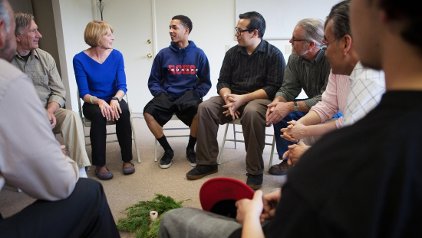The U.S. witnesses an alarming string of multiple mass shootings. Among the deadliest in the country’s history was the rampage in an elementary school in Newtown, CT, where a gunman killed more than two dozen people, mostly children. He also killed his mother and himself. The Connecticut shooting prompted President Barack Obama to call for an end to such tragedies, but what policy changes can Americans realistically expect? A Harvard Forum event investigated the legal, political, and public health factors that could influence future efforts to prevent such massacres. The Second Amendment of the U.S. Constitution protects the right to gun ownership. And soon after every shooting, the head of the powerful National Rifle Association cames out swinging on behalf of gun rights, saying that the news media and violent video-games shared blame for the deaths, and proclaiming that the only thing that stops a bad guy with a gun is a good guy with a gun. Americans, as a population, remain conflicted in their views on guns. A recent USA Today Gallup Poll found that 58% backed tougher gun laws, but a narrow 51% majority opposed any moves to outlaw assault weapons. Gun enthusiasts’ commitment to buying and owning weaponry seems to have surged in the wake of the Newtown tragedy.
Related Articles
what happened when an optometrist met a political activist
a movement dedicated to eradicating poverty
transformation and the NoVo Foundation
The needs of the victims and the offenders
what is the restorative justice?
the initiative of Zhang Xin
Let me now serve you the food of your enemy
the excellent idea of the Conflict Kitchen
and the help of Be the Match
What are the Families for Excellent Schools?
when parents speak for themselves
Connecting women and technology
the Anita Borg Institute
the story of Freddi Zeiler
![]()
STAY IN TOUCH
SUBSCRIBE TO OUR NEWSLETTER
AND RECEIVE OUR LATEST STORIES










